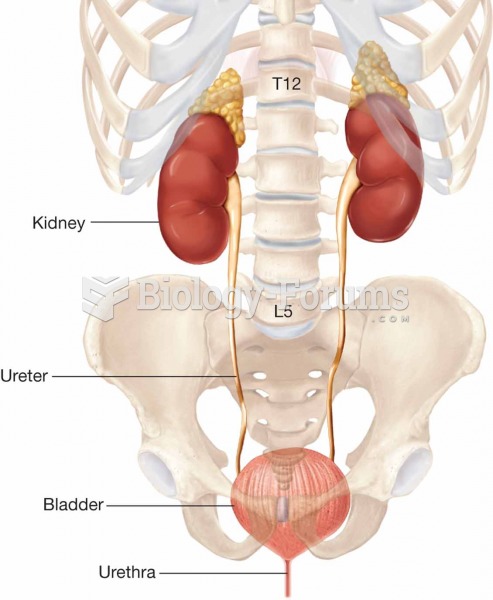|
|
|
On average, someone in the United States has a stroke about every 40 seconds. This is about 795,000 people per year.
Elderly adults are at greatest risk of stroke and myocardial infarction and have the most to gain from prophylaxis. Patients ages 60 to 80 years with blood pressures above 160/90 mm Hg should benefit from antihypertensive treatment.
The average person is easily confused by the terms pharmaceutics and pharmacology, thinking they are one and the same. Whereas pharmaceutics is the science of preparing and dispensing drugs (otherwise known as the science of pharmacy), pharmacology is the study of medications.
Bacteria have flourished on the earth for over three billion years. They were the first life forms on the planet.
Illicit drug use costs the United States approximately $181 billion every year.







